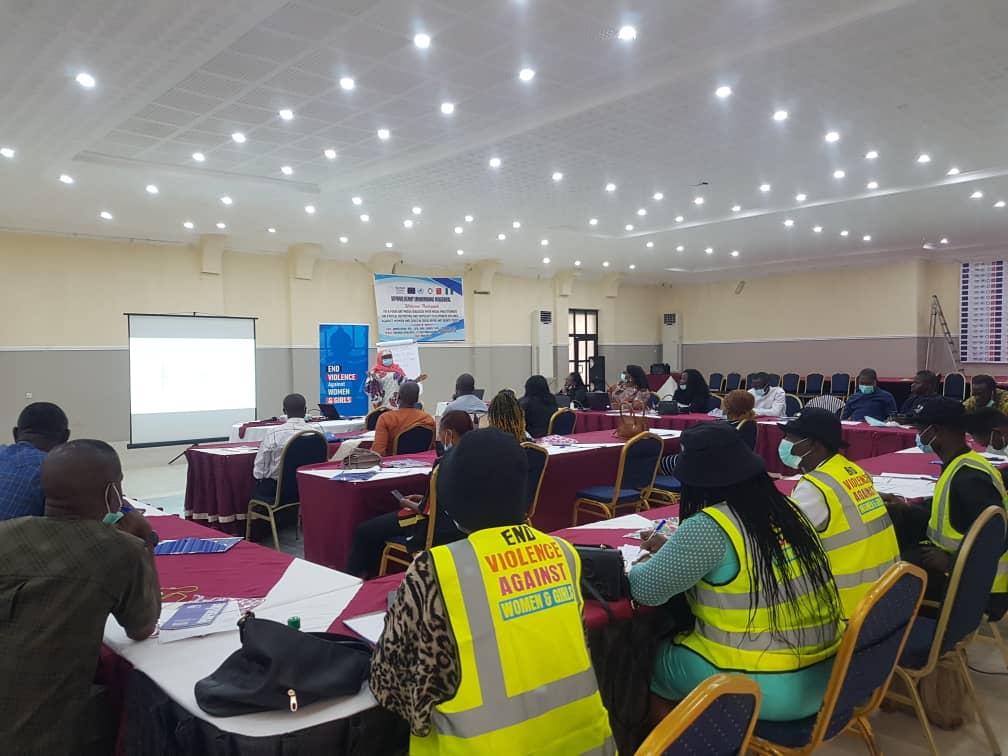Violence against women, girls still rampant, says EU-UN
The European Union-United Nations (EU-UN), Monday, stated that violence against women and children are still rampant in the country, especially in Ebonyi state.
The Joint EU-UN Spotlight Initiative Communications coordinator at UNICEF, Khadijah Ibrahim Nuhu, stated this at a four-day media dialogue with media practitioners on ethical reporting and advocacy to eliminate violence against women and girls in Ebonyi and Cross River States.
She said the rampant of violence against women and Girls among other reasons, necessitated the dialogue with media practitioners from Ebonyi and other states where there is prevalence of Violence Against Women and Girls (VAWG).
Nuhu noted that the objectives of the programme are to ensure effective media engagement, increase participants knowledge on ethical reporting, engage in gender equality discourse and role in impacting/changing negative social norm among others.
She charged journalists in attendance to open up in discussions with the Spotlight Initiative partners and resource persons so that they can deepen their role in promoting an end to Violence Against Women and Girls.
She noted that it was important for journalists to move beyond reportage of incidences of violence against women and girls and begin to do investigative journalism, be more invested in the issue of VAWGs through advocacy and solutions journalism.
Meanwhile, the European Union-United Nations (EU-UN), had stated Female Genital Mutilation(FGM) persists in Nigeria due to deeply entrenched cultural practice and beliefs in many communities in the country which vary across the communities with regional and ethnic variations in prevalence.
It also identified ignorance and limited knowledge of the harmful nature of the phenomenon as well as existing laws against the practice as the reasons the act persists in the country.
In his presentation at the workshop on behalf of the European Union, the United Nations Children’s Fund Child Specialist, Victor Atuchukwu further identified weak and poor enforcement of existing FGM laws, weak national and state level FGM response coordination bodies and financial gains as the reason the practice persists in Nigeria.
He explained that 2018 National Demographic Health Survey reveals that FGM among girls age 0-14 was the most common among girls whose mothers were circumcised, have no education and from the lowest wealth quintile.

